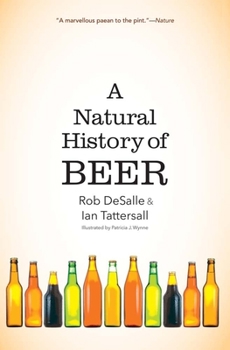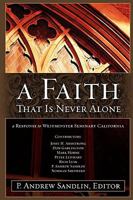A Natural History of Beer
Select Format
Select Condition 
More by P. Andrew Sandlin
Book Overview
A celebration of beer--its science, its history, and its impact on human culture "Curatorial eminences Rob DeSalle and Ian Tattersall serve up a potent scientific brew. . . . A marvellous paean to the pint, and to the researchers probing its depths." -- Barbara Kiser, Nature "Forced to choose between this book and a pint of hazy IPA, I would be at a loss. Better to consume them at the same time--both will go down easily, and leave you in an improved condition."--Bill McKibben What can beer teach us about biology, history, and the natural world? From ancient Mesopotamian fermentation practices to the resurgent American craft brewery, Rob DeSalle and Ian Tattersall peruse the historical record and traverse the globe for engaging and often surprising stories about beer. They explain how we came to drink beer, what ingredients combine to give beers their distinctive flavors, how beer's chemistry works at the molecular level, and how various societies have regulated the production and consumption of beer. Drawing from such diverse subject areas as animal behavior, ecology, history, archaeology, chemistry, sociology, law, genetics, physiology, neurobiology, and more, DeSalle and Tattersall entertain and inform with their engaging stories of beer throughout human history and the science behind it all. Readers are invited to grab a beer and explore the fascinating history of its creation.
Format:Paperback
Language:English
ISBN:0300264682
ISBN13:9780300264685
Release Date:April 2022
Publisher:Yale University Press
Length:256 Pages
Weight:0.70 lbs.
Dimensions:0.7" x 5.9" x 8.8"
Related Subjects
Contemporary Europe France History Literature & Fiction Philosophy World World LiteratureCustomer Reviews
6 customer ratings | 5 reviews
There are currently no reviews. Be the first to review this work.



































